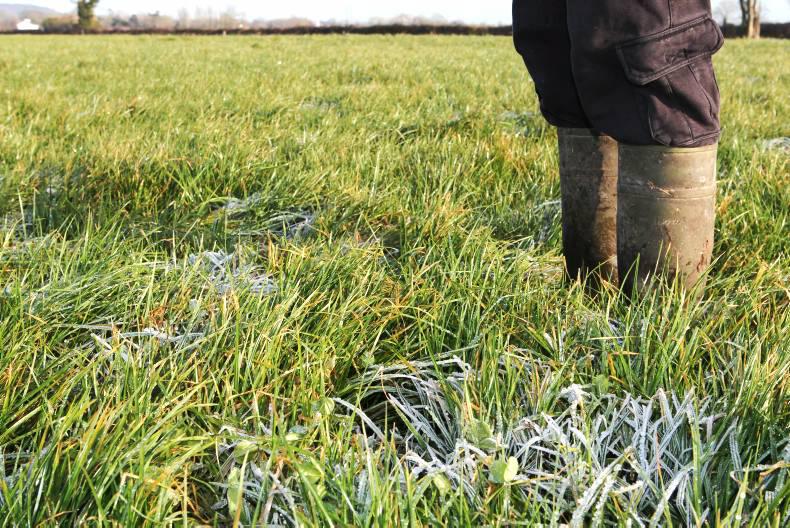“If I was to be given any portfolio, there is no other I would have asked for,” says new Minister for Agriculture Michael Creed. “I come from a family farming background, I was a full-time farmer before entering politics – the land is in my DNA. Of course, that won’t make my job any easier, but it does give me a feel for what farmers want. I have access to the levers that can deliver for farmers, and that will be my focus.”
Michael Creed’s appointment as Minister for Agriculture came as a shock even to him. “The first I knew was at 5.30pm last Friday. I had no prior indication of any sort,” he says.
The Macroom man was not on anybody’s radar for cabinet this time. He has effectively been out in the cold since 2010, when he was sacked from the front bench for backing Richard Bruton’s leadership challenge. At the time, Creed was agriculture spokesman for the main opposition party, and seemed poised to become the next minister with Fine Gael set for power following the economic meltdown under the Fianna Fáil/Green Party coalition. His ability has never been in doubt, and he is full of energy and enthusiasm for the task ahead.
The Irish Farmers Journal asks the minister about the programme for Government, and the key measures affecting his brief that were signed off on before he assumed office. Are they issues he is comfortable introducing?
“A payment for sheep is something that exercised myself, and indeed many of my backbench colleagues in Fine Gael, during the last government. I’m delighted to see this measure confirmed for two reasons – firstly for the difference it will make to incomes, but also for the difference it can make in terms of unleashing the untapped potential of the sector. I will be engaging in consultation with the farm organisations and other stakeholders at the earliest opportunity on how best to deliver the payment.
“Similarly, I welcome the extra €25m funding for the Areas of Natural Constraint (former DAS). This measure needs to be understood in the context of cuts to payments made in the past. As the economy recovers, there is some scope to make good on those cuts. The extra funding will be delivered in conjunction with the review of eligibility that is required.
“I am particularly glad to be able to increase supports for farmers on marginal land. My own constituency has a lot of disadvantaged land, but there’s marginal land all over Ireland, from Malin Head to Mizen Head.
“In terms of the capping of maximum payments at €100,000, this is an issue that was much debated during CAP reform. There was a lot of resistance at EU level, but we will take it up with the Commission.
“I’m meeting with Commissioner Hogan on Thursday, and with the Climate Change Commissioner Miguel Arias Cañete on Friday.”
I ask the minister how he envisages issues such as Climate Change being handled in relation to farming, with so many departments now involved.
Denis Naughten has specific responsibility for Climate Change, along with Natural Resources and Transport, while Heather Humphreys oversees Regional Development and Rural Affairs. The old Environment portfolio is now held by Simon Coveney – less climate change – so he will be an interested party.
“The one thing all four of us have in common is that we all have the interests of rural Ireland at heart. Not that there is an out on this; we have to meet our responsibilities and we will.
“That said, I will be pushing at EU level regarding the unmatched carbon efficiency of our grass-based production systems. I will also be looking for full recognition of the role our forestry plays as a carbon sink; we need to get credit for the good it does.”
How does the minister envisage his role as the agriculture minister in a minority government which will need the ongoing support of rural TDs, both in the independent groups and in Fianna Fáil?
“There is a difference, and if we don’t realise that from day one, if we don’t hit the ground running in the right manner, in terms of consensus-building, we won’t last very long as a government.
“My fellow TDs in my own constituency are both Fianna Fáil TDs [Michael Moynihan and Aindrias Moynihan]. Both understand rural and farming issues, and both are sensible and know that there isn’t an endless pot of gold to be spent.”
“I intend to regularly consult with all sides of the house, and if I get a good idea presented to me, whether it’s from our own backbenches, from Fianna Fáil, from independent TDs, even if it’s from People before Profit, I will implement it.
Finally, is there is any single issue that is at the top of his menu?
“With farming, it’s always incomes, incomes, incomes,” he replies. “Right now, the one issue that is keeping me awake is the possibility of a British exit from the EU. We have to be careful and exhibit sensitivity, an inappropriate intervention would be potentially damaging to the outcome.
“That said, there are 120,000 people living in Ireland with a vote in the referendum, and many more in the UK who value their Irish heritage, we need to reach out to them regarding our shared interests. There is a huge national interest at stake. If the UK were to leave the EU, they could, for instance, complete a trade agreement with the Mercosur countries that would see the possible displacement of large volumes of Irish beef.”






 This is a subscriber-only article
This is a subscriber-only article










SHARING OPTIONS: